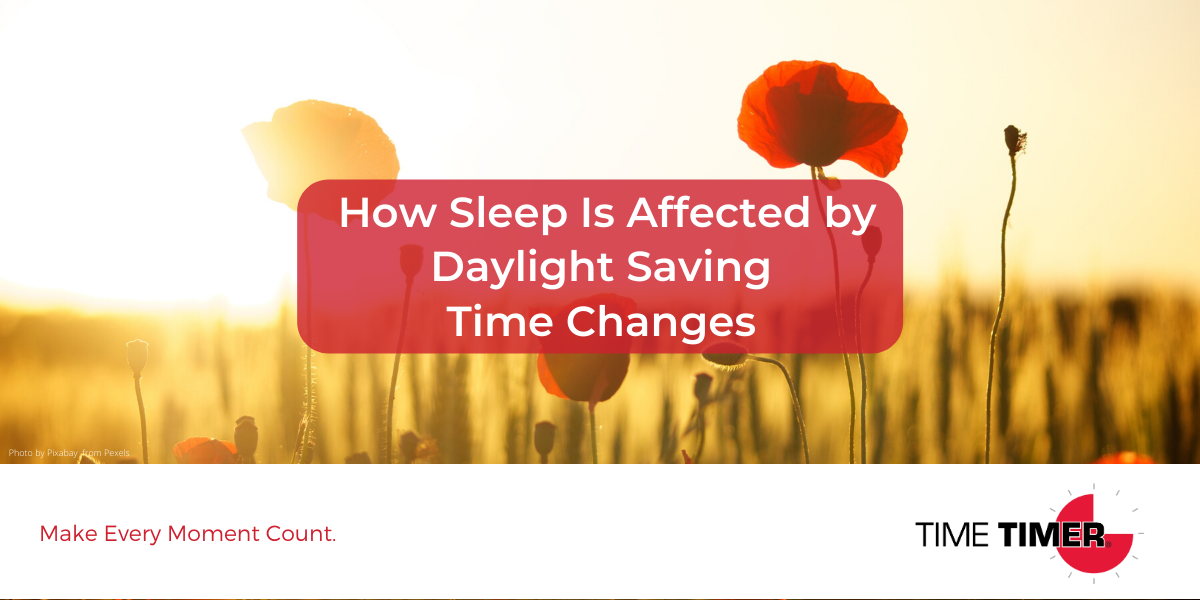None of us look forward to setting our clocks forward an hour and waking up earlier when daylight saving time starts. It’s an adjustment every year and children or work schedules can complicate the change.
Preparation, however, can make the change easier.
Why Do We Have Daylight Saving Time?
The purpose of Daylight Saving Time (DST) is to make the most of daylight and save on energy needed for artificial lighting, although the latter has become less important as we moved away from coal power.
It’s most beneficial for those who live in northern areas, as the farther you live from the Equator, the more extreme seasonal changes are. If you live closer to the planet’s middle, then the amount of sunlight you see remains far more consistent year-round —which is why Hawaii and much of Arizona opt-out of DST.
How Daylight Saving Time Affects Children
Many parents dread changing with springtime DST, as it often means dealing with an exhausted, cranky child the next day. And while some children are adaptive, many grow attached to a preexisting routine, particularly children with special needs, and find disruptions to their sleep schedule difficult.
Sitting down with children and explaining through a story why we follow DST can make the schedule change easier. Setting bedtime back by increments before DST takes effect also helps with the transition.
If parents are consistent with changes to a routine, most children will adjust within a week.
How Daylight Saving Time Affects Working Professionals
Many workers find themselves sleep-deprived a few days after setting their clocks forward, feeling anxious or cranky the morning after. They may feel sluggish and have difficulty making decisions.
The fact that many workers are already sleep-deprived increases the effect of DST, as many individuals neglect to get at least 7 hours of sleep every night.
If you work night shifts, DST can affect your shift times. In the spring, you work an hour less, while in the fall you work an hour more.
Why Is Sleep Important?
Sleep is as critical to your body’s well being as regular exercise and a healthy diet. Your body doesn’t just shut down when you go to bed, but instead performs vital recovery tasks.
Sleep also helps regulate heart health, mood, critical thinking skills, and your immune system.
How Much Sleep is Enough?
To minimize the impact of DST, you should make sure you’re getting enough sleep before the change. If you’re sleep-deprived, it will be harder to adjust.
The exact amount of sleep needed varies from person to person and depends on your age range.
- Newborns: 14 to 17 hours of sleep
- Infants: 12 to 15 hours of sleep
- Toddlers: 11 to 14 hours of sleep
- Children up to age 5: 10 to 13 hours of sleep
- Children up to age 13: 9 to 11 hours of sleep
- Teenagers: 8 to 10 hours of sleep
- Adults age 18 to 64: 7 to 9 hours of sleep
- Adults age 65 and older: 7 to 8 hours of sleep
Your lifestyle can also affect how much sleep you need. Athletes, for example, need an extra hour of sleep to give their bodies more time to recover.
How to Get Better Sleep
With preparation, you can minimize the disruption DST has on your life.
Plan for the change and adjust bedtimes in 10 to 15-minute increments. This is especially important for children attached to routine, as small, gradual changes will help them acclimate better than a large change all at once.
Set up a pre-bedtime routine to maximize relaxation. Take a warm bath, read a book, and do some light stretches. If worries often keep you awake, set a Time Timer for 15 minutes to write down concerns and possible solutions.
At the same time, don’t stray too far from established routines. If your children normally enjoy a bedtime story before bed, keep reading one. If you eat the same food for breakfast every morning, keep making it.
Avoid strenuous activities in the evening, such as a vigorous workout or heavy cleaning, as it will keep you from falling asleep. If the evening is your best time to exercise, stick to a moderately intense activity like jogging and do it as early in the evening as you can.
Keep the bedroom as dark as possible when it’s time for sleep. Try eye masks and blackout curtains if you have problems falling asleep. Avoid using electronics a couple of hours before bed, as the bright lights can increase wakefulness.
Get lots of sunlight after the time change, particularly in the morning. Sunlight helps keep your body’s internal wake-sleep clock on track.
And avoid trying to make up for lost sleep later on. It’s more important to stick to a standard bedtime and wake time to prevent sleep disruptions. Yes, this means no sleeping in on the weekends.

